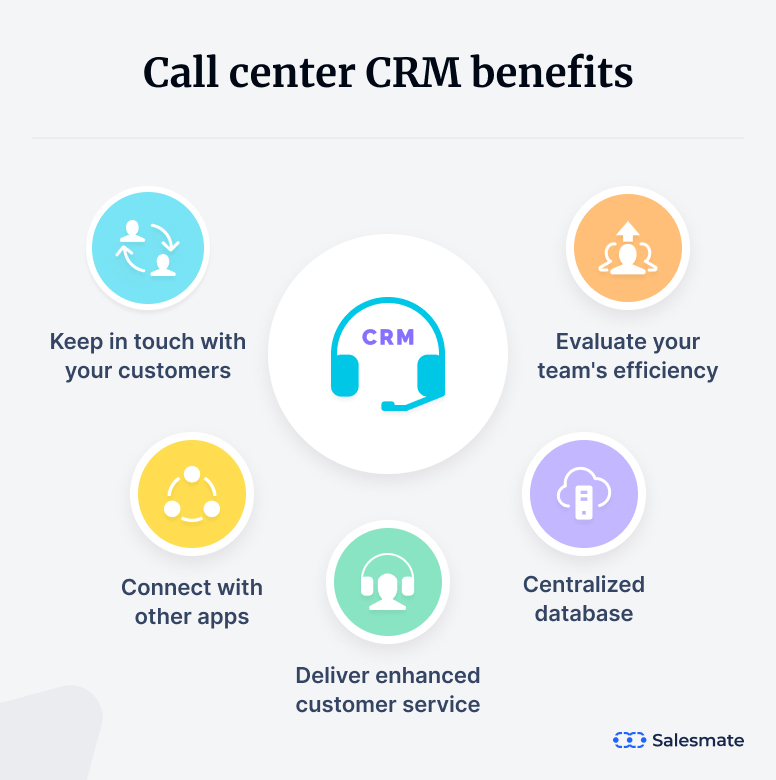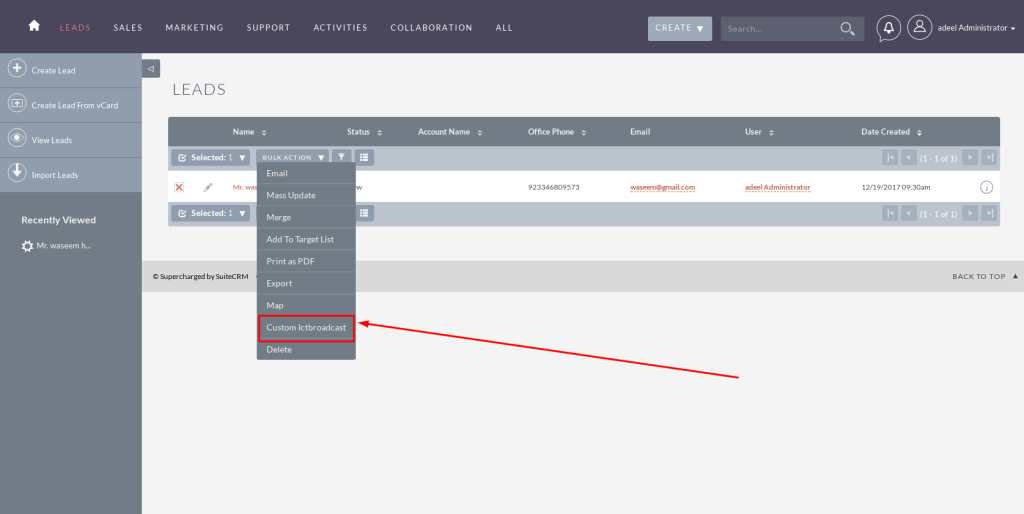Over time, call centers have established themselves as the primary means for businesses to engage with their customer base. As a crucial component of customer service strategies, they play a pivotal role in fostering customer loyalty. However, the landscape of customer service has evolved alongside the emergence of digital technology and social media, necessitating adaptations within call centers.
Enter call center CRM (Customer Relationship Management), an invaluable instrument for providing outstanding customer service. By enabling businesses to optimize the management of customer interactions, call center CRM enhances efficiency and effectiveness. In this article, we will explore the ways in which call center CRM empowers businesses to deliver unparalleled customer service.
What is a Call Center CRM?
Call center CRM, as a software solution, facilitates the comprehensive management of customer interactions across various channels for businesses. By granting agents access to customer information and historical data, tracking customer interactions, and facilitating issue management, call center CRM streamlines operations. These CRM systems often integrate seamlessly with other essential business applications like marketing automation, sales force automation, and analytics tools.
Equipped with an array of features, call center CRM solutions empower businesses to enhance their customer service capabilities. These features encompass call routing, Interactive Voice Response (IVR) systems, call recording, analytics, and reporting. By equipping agents with these tools, businesses can optimize their customer service, ensuring more efficient and effective handling of customer interactions.

How Call Center CRM Helps Deliver Exceptional Customer Service
1. Personalization
Through the utilization of call center CRM, businesses can effectively personalize customer interactions. By leveraging customer information and historical data, agents gain rapid insight into the specific needs and preferences of each customer. This empowers agents to offer personalized recommendations and tailored solutions that align with the customer’s unique requirements.
The significance of personalization in delivering exceptional customer service cannot be overstated. It demonstrates to customers that the business values them as individuals and is committed to exceeding their expectations. By going the extra mile to meet their needs, businesses can foster a strong sense of loyalty and satisfaction among their customer base. Call center CRM plays a pivotal role in enabling this level of personalization and elevating the overall customer experience.
2. Improved Efficiency
The implementation of call center CRM can bring about notable improvements in call center efficiency. Through the automation of repetitive tasks like call routing and data entry, agents are freed up to concentrate on handling more intricate customer interactions. This not only enhances agent productivity but also diminishes the time customers spend waiting on hold or being transferred between departments.
3. Multichannel Support
Call center CRM supports multiple communication channels, including phone, email, chat, and social media. This allows customers to interact with the business in their preferred way. It also enables agents to provide consistent customer service across all channels.

Multichannel support is essential for delivering exceptional customer service in today’s digital age. Customers expect businesses to be available on the channels they use most frequently, and call center CRM makes this possible.
4. Data Analytics
Call center CRM offers businesses invaluable data insights that drive continuous improvement. Through the analysis of customer interactions and feedback, businesses gain valuable information to identify areas for enhancement and make necessary adjustments to their customer service strategies.
Data analytics plays a pivotal role in measuring the effectiveness of customer service initiatives. By tracking key metrics such as call resolution time and customer satisfaction scores, businesses can gain a comprehensive understanding of their performance. These metrics enable businesses to assess the efficacy of their strategies and make data-driven decisions for improvement.
5. Collaboration
Call center CRM promotes collaboration between agents and other departments within the business. By providing a centralized platform for customer interactions, all agents can access the same information and work together to resolve customer issues.
Collaboration is crucial for delivering exceptional customer service. It ensures that customers receive consistent and accurate information, regardless of who they speak to.
Conclusion
Call center CRM is the ultimate tool for delivering exceptional customer service. It allows businesses to manage customer interactions more efficiently and effectively, while also providing a personalized and seamless customer experience. With features such as multichannel support, data analytics, and collaboration, call center CRM is a must-have for businesses that want to succeed in today’s digital age. By investing in call center CRM, businesses can not only improve their customer service but also increase customer loyalty and retention.
Leveraging Open Source in ICT
